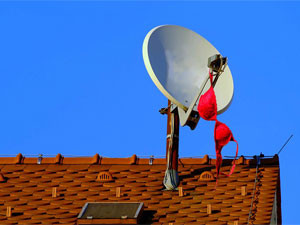
Three months down the line from the Independent Communications Authority of SA's (ICASA's) decision to grant TopTV permission to broadcast three adult channels via its subscription pay-TV service, the regulator has outlined its reasons.
The proposition of pornography on SA's airwaves has had certain factions - in particular religious groups - hot and bothered since On Digital Media's (ODM's) pay-TV platform, TopTV, expressed its interest in offering adult entertainment at the end of 2011.
Having initially failed in its attempts, TopTV again submitted an application - for three 24-hour pornography channels - to ICASA about a year later, on 28 November 2012.
TopTV later amended the screening time, saying it would only broadcast the channels - Playboy TV, Desire TV and Private Spice - during the watershed period of 8pm to 5am.
On 24 April - after numerous processes, including the establishment of a Council Committee, Gazetting of the proposal and an invitation for written submissions and public hearings - ICASA authorised TopTV's application.
At the time, the regulator said there was no law of general application prohibiting the production and distribution of adult content in SA. "Only the production and distribution of child pornography is expressly prohibited by law."
Reasons and process
ICASA on Thursday outlined the reasons and process behind its final decision to allow TopTV to air pornographic content.
The application was considered against SA's legislative framework, including the Subscription Broadcasting Services Regulations, the Electronic Communications Act, the Broadcasting Complaints Commission of SA Code of Conduct (BCCSA), and the Constitution of SA.
ICASA says it received 569 written submissions from interested parties within the time frame given as per the Gazette (by 21 January 2013); a further 75 after the closing date; and nine organisations expressed their intention to make oral presentations.
The public hearing, held on 14 March, saw the Family Policy Institute, African Christian Democratic Party, Free Society Institute, Doctors For Life, Africa Christian Action, Shofar Christian Church, Free Society Institute, Active for Jesus, and Evergreen Parenting making oral submissions.
The hearings, says ICASA, raised two questions that were paramount in informing its final decision: whether there is a law of general application that can be held to limit ODM's right to freedom of expression in terms of the Constitution; and whether there is a direct relationship between the dissemination of adult content and gender-based violence.
After due consideration, the authority granted TopTV's application, saying "there is no basis in law or research evidence to refuse the applicant's application for authorisation of three pornographic channels".
Stakeholders who still oppose the application now have two forms of recourse: approaching Parliament to formulate a law to prohibit the distribution of adult material; and monitoring TopTV's broadcast of the adult channels to ascertain whether the broadcaster is in compliance with the code, and submit complaints to the BCCSA in this regard.
TopTV is bound to three conditions in the broadcasting of Playboy TV: the three channels are to be broadcast within the watershed period; security measures (ie, a double PIN code) outlined in ODM's application are to be implemented at all times; and the three adult channels are to be available to subscribers as a separate subscription to the main ODM offering.
TopTV says it is not in a position to comment or announce any developments at this stage, due to its ongoing business rescue process involving China's StarTimes being negotiated and finalised.
Share